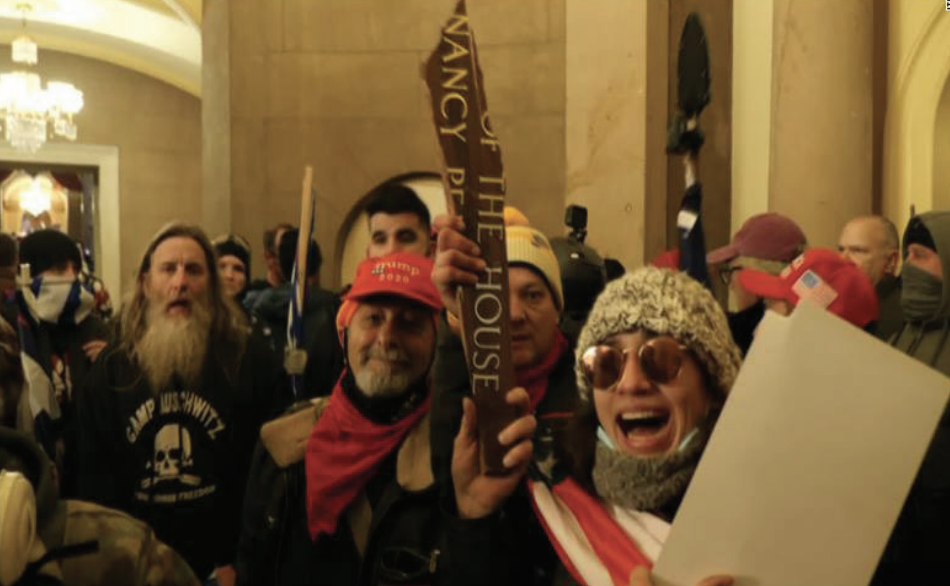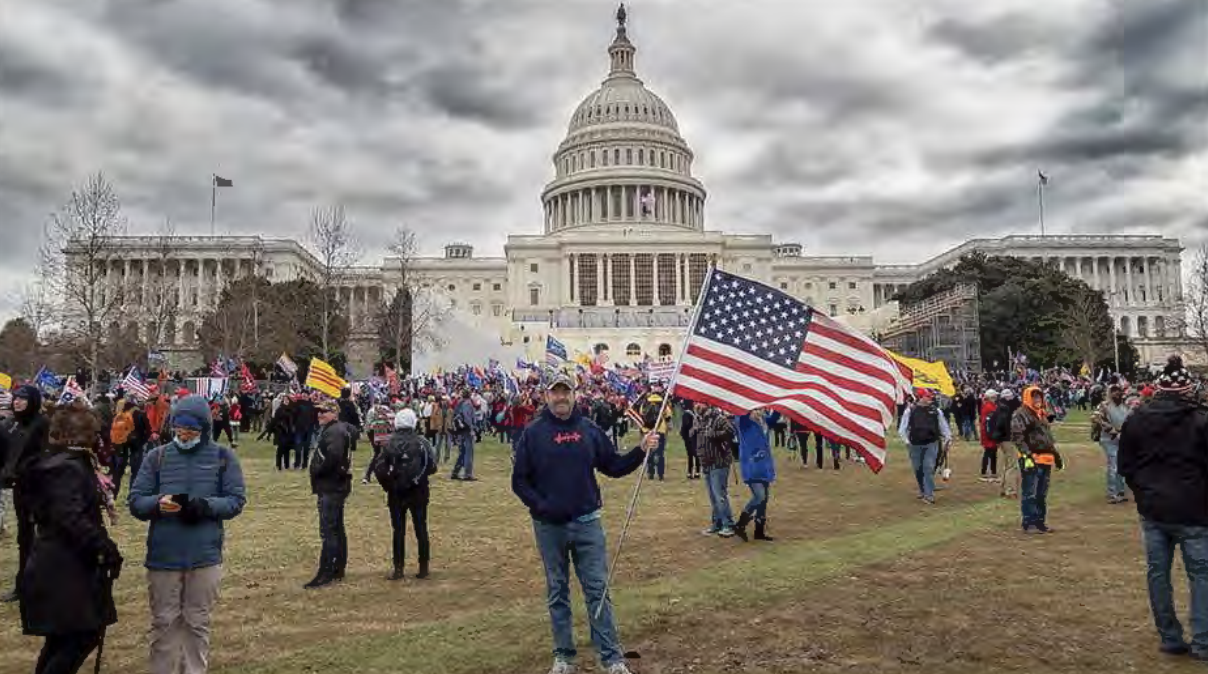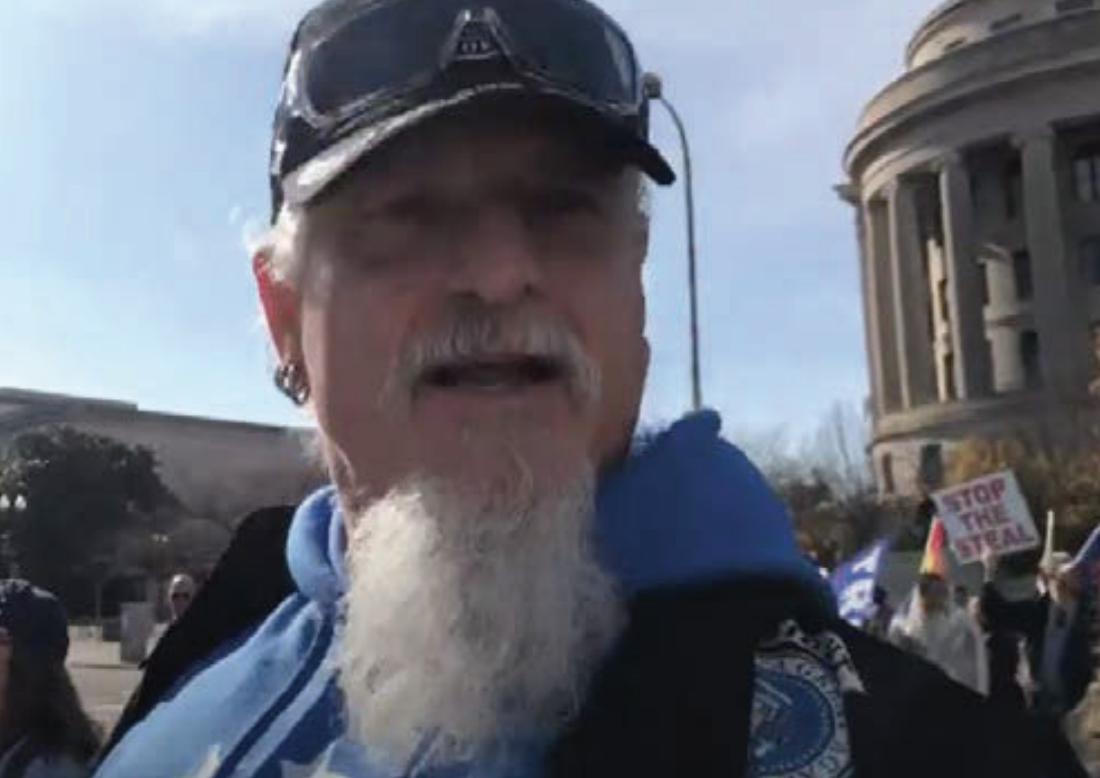On January 6, Look to the Continuances
Riley June Williams — the woman with ties to the far right who was shown on video directing people around the Capitol and is accused of abetting the theft of Nancy Pelosi’s laptop — has not yet been indicted. Normally, the Speedy Trial Act gives prosecutors a limit of time — roughly 30 days — to formally charge you after you’re arrested. But with Williams, the government has been using a series of motions to extend this timeline. They currently have until July 21 to indict Williams.
That, by itself, isn’t all that unusual. But amid an ongoing conversation about whether the January 6 investigation will hold the most powerful accountable for the insurrection, I want to point to the existing long unindicted defendants to suggest, again, we don’t really know where this investigation is going.
Tracking which January 6 defendants haven’t been indicted is one way to identify cases that might be more interesting than others. Jon Schaffer’s case got continued for months leading up to his entry into a cooperation agreement on April 16. And Christopher Kelly’s case got continued for months before the government moved to dismiss it on June 1. At least some of these weren’t the boilerplate unopposed motions for a continuance, citing the unprecedented challenge of assembling all the evidence in this case, that have been used in most defendants cases; they were more specific requests for more time to conduct the investigation. As the disparate fate of these two men suggests, you can’t really tell what is interesting about a case if the formal charging is delayed.
But such non-boilerplate continuances are one thing I track (and I know other journalists do too) for potentially interesting cases. They happen in formally charged cases, too (for example, QAnoner Doug Jensen’s case got continued until tomorrow in such a fashion after prosecutors enhanced his own legal exposure). But it is easier to track the especially interesting delays in cases, like Williams’, where the defendant hasn’t been indicted yet.
To be sure, such continuances don’t guarantee a case will be interesting. A number of these cases end up in delayed felony charges (though that’s true of the boilerplate continuances as well). Sometimes these delays are attributable to delays in attorneys getting approved to represent defendants in the DC District. In several cases, such continuances were used when either the defendant or their lawyer got COVID. Sometimes, it even seems like the system has lost defendants (with just a handful of exceptions, thankfully not those being detained). There are a couple of defense attorneys and a couple of prosecutors who just seem to like doing it this way.
Often, lawyers attribute the delay to plea discussions (though that’s generally the reason for the unopposed continuances, as well as the consent ones).
Sometimes something else seems to be going on. For example, Prosecutor Brandi Harden has twice gotten continuances in the case of Emanuel Jackson, the developmentally challenged homeless man who walked into the middle of the insurrection off the street and was handed a baseball bat which he used to assault cops, with the explanation, “There are outstanding issues related to Mr. Jackson’s case, that the parties are continuing to address.”
In several cases, such continuances seem to tie to a defendant’s other existing legal problems. For example, Bryan Betancur violated probation by lying about his purposes for going to DC on January 6, and so has been thrown back in jail because of it (though Betancur’s friend, Britney Dillon, was recently charged in the riot). In another example, when the FBI searched Adam Honeycutt’s home in association with this January 6 arrest warrant, they found guns and marijuana that exposed him to charges in Florida; DC prosecutors are delaying his January 6 prosecution until after a trial this week on the possession charges in Florida. But in at least one of those cases — that of Kash Kelly, charged with just misdemeanor trespassing — the delay comes with a defendant who was discussed in a conversation involving Rudy Giuliani and who cooperated against his fellow gang members in his drug-related prosecution in Illinois. The fact that Ryan Samsel’s then girlfriend, Raechel Genco, has had her own trespassing case continued, makes his more intriguing, though there’s a long list of reasons that readily explain why Samsel’s prosecution has been delayed, not least that he was brutally beaten by someone yet to be determined while he in the DC jail.
All that said, I wanted to point to some clusters that may suggest future developments. An easy one are the cases of Emily Hernandez, her uncle William Merry, and their friend Paul Westover all of which have been delayed with continuances. They traveled to insurrection together and show up in pictures showing off the piece of a sign from Nancy Pelosi’s office they stole.
It would be unsurprising to see these cases get combined into a conspiracy, possibly with others from St. Louis.
That said, a goodly number of defendants awaiting formal charges were in Pelosi’s office, including Williams.
Along with Williams, there are others, like Anthime Gionet, who have known ties with America First or were in the vicinity of others self-identifying as America First who are also awaiting their charges.
Then there’s the case of Brandon Straka. He’s the head of the Walkaway campaign, and was a speaker on January 5. There’s no allegation he entered the door of the Capitol, though at a time when he was on the stairs, he was involved in attempting to take a shield from an officer and for that got charged with civil disorder (in addition to the standard trespass crimes). He obviously could be charged with obstruction, but that hasn’t been charged yet. On May 24, the parties asked for a continuance and excludable delay until August, but Magistrate Judge Robin Meriweather hasn’t yet issued an order approving that. (There’s one other person that engaged in higher level organizing, but I suspect it’s the choice of her attorney.)
Update: This morning Judge Meriweather signed the Straka continuance.
Update: Doug Jensen wants to go work while he awaits resolution of his case (specifically mentioning self-surrender) so he settle his affairs and take care of his family.



